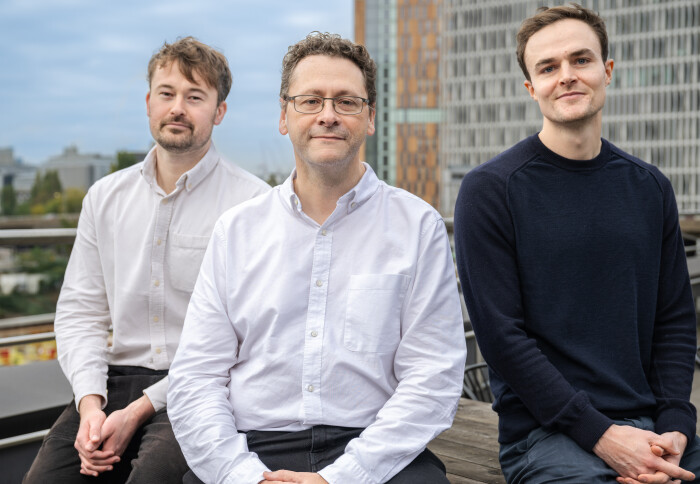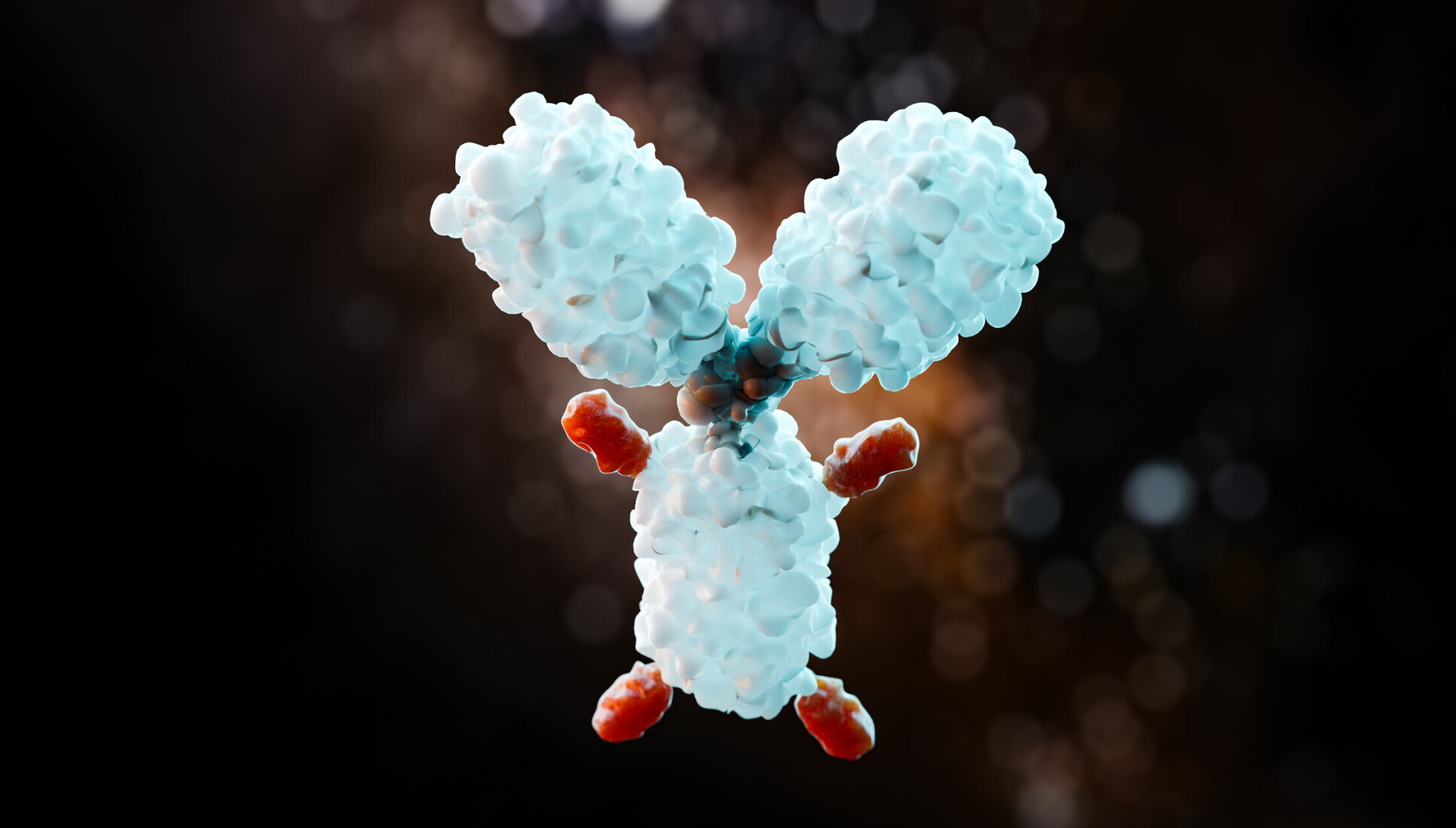Imperial spinout Siftr Bio aims to improve precision of ADC cancer drugs

Dr Archie Wall, Professor Ed Tate and Dr Daniel Lucy founded Siftr
A new Imperial spinout aims to improve the performance of an emerging class of cancer treatments known as antibody-drug conjugates or ADCs.
ADCs are transforming the treatment of several types of cancer due to the improved precision they offer over traditional chemotherapies. By using antibodies to deliver payloads of highly potent chemicals directly to cancer cells, they provide a more powerful treatment for some cancer indications with fewer side effects.
However, the drug release mechanisms in ADCs are not perfectly specific and they remain prone to damaging healthy cells.
While many companies are working to finding improved antibodies or payloads, the new company, Siftr Bio, plans to improve the performance of ADCs by developing better linkers – the mechanisms that determine when the toxic payload is released within the tumour.
“The current toolbox of linkers is small and limits the possibilities for ADC design. We’re looking to move beyond that and reimagine ADC linker design for the next generation,” said Siftr Bio’s CEO and co-founder Dr Daniel Lucy.
ADCs are transforming the treatment of several types of cancer due to the improved precision they offer. However, the drug release mechanisms in ADCs are not perfectly specific and they remain prone to damaging healthy cells.
Using an innovative platform technology initially developed at Imperial, the company will test candidate linkers on healthy human cells and cancer cells to evaluate their performance.
“Instead of using reductionist models like cellular and animal models, which are easy to work with but don’t always represent the complexity of disease, our platform allows us to work with human tissue from the very beginning of the process,” explained Siftr Bio co-founder and Chief Scientific Officer, Dr Archie Wall.
“We can see which linkers work well in the complex tumour environment and be more confident to progress linkers towards the clinic."
From bench to bedside
Dr Lucy and Dr Wall carried out early research behind the platform in the laboratory of co-founder Professor Ed Tate, GSK Chair of Chemical Biology in Imperial’s Department of Chemistry.
Professor Tate is also a founder of biotechnology company Myricx Bio, which recently raised £90 million to clinically develop ADCs based on a novel payload class discovered in his labs.
Siftr is one of only a handful of companies worldwide that will focus exclusively on linker design for ADCs. It has received £1m pre-seed funding and taken up laboratory space in the White City Incubator, an Imperial innovation hub that provides space and support to deep science startups. Siftr’s launch was supported by the CRUK-backed Cancer Tech Accelerator, which the team graduated from in October.
Professor Tate said: "In my lab, Dan and Archie along with other Tate group members including Dr Aidan Pidd established a groundbreaking approach that integrates high-throughput biology and chemistry with ultrasensitive proteomics, and targets the heart of human disease, in samples from patients. I look forward to working with Siftr as they fulfil the promise of this platform to revolutionise ADC linker discovery, and targeted drug delivery in cancer and beyond."

Innovation ecosystem
Imperial has provided Siftr with a range of resources designed to maximise entrepreneurial success, also including the Healthcare Technologies Capability Connector, a Research England backed partnership with the University of Hertfordshire that supports life sciences SMEs.
The team has additionally raised a further £1m in non-dilutive research funding to drive ADC linker innovation in the Tate lab, in close collaboration with Siftr.
Siftr is now seeking partnerships that will allow it to create new, differentiated ADCs based on the insights delivered through its platform.
Dr Simon Hepworth, Co-Director of Enterprise (Commercialisation), said: “ADCs are already proving themselves to be transformational but they’re not a silver bullet. Professor Ed Tate and his team are delivering a steady flow of groundbreaking research and innovation that we hope will save many lives through new and improved ADCs – and we are helping the team bring this from bench to bedside through our founder-friendly policies, entrepreneurship training programmes and White City Incubator. I look forward to seeing where Siftr Bio go next.”
Photo at top: Fergus Burnett/Imperial College London
Article text (excluding photos or graphics) © Imperial College London.
Photos and graphics subject to third party copyright used with permission or © Imperial College London.
Reporter
David Silverman
Communications Division